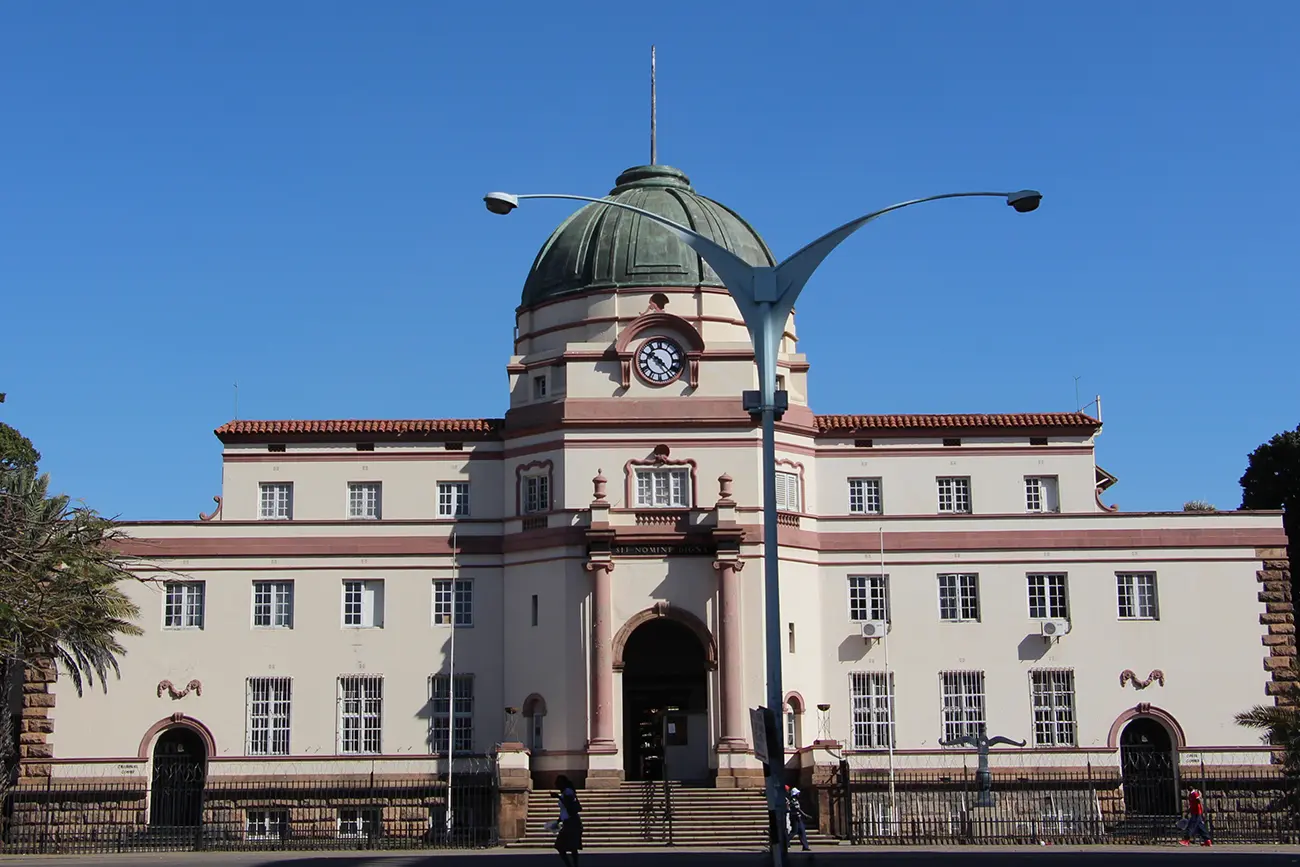
By Nicole Fritz
Swaziland: A green, hilly kingdom not far away. Ruled by a king and his mother. Where young nubile maidens compete for the king’s affections so that they might win a place as his latest wife. And where a brand spanking new international airport, named for the king, has been recently unveiled.
No matter that here there is no real “international” traffic. Or that the air traffic regulations which earned Swaziland greatest notoriety stipulate that witches flying their broomsticks above 150m are liable to arrest and payment of a hefty fine.
No matter that the average Swazi will struggle to afford land transport let alone air passage.
A correspondent for a respected international newspaper tweeted recently about the “affably despotic King Mswati” who had taken another teenager as wife no. 15 – a tweet that illustrates how Swaziland provokes by way of censure, at most, wry bemusement. Because to outsiders the happenings in this little land of make-believe don’t seem all that serious. In fact, they’re a bit of a joke. . .
Except for most Swazis they’re not. And stories of kings, maidens and witches’ broomsticks don’t obscure for them the real levers of oppression. Just this week respected human rights lawyer Thulani Maseko and Bheki Makhubu, editor of the Nation – one of the few independent, critical publications available in Swaziland – were the subject of unlawful arrests and detentions.
Their only crime? They had dared speak critically of Swaziland’s highest judge, Chief Justice Michael Ramodibedi, authoring articles which detailed Ramodibedi’s subversion of justice in another recent case. Once arrested, they were brought before Ramodibedi in chambers and remanded in custody, in violation of Swazi law which requires that accused be brought before open court and given the opportunity to apply for bail.
Not only did Ramodibedi insist on closed legal proceedings in remanding Maseko and Makhubu in custody, but in a highly irregular move entirely at odds with the nature of his office, Ramodibedi instructed police to deny them access to their legal counsel prior to the hearing.
Ironically, it was just this type of lawless, autocratic treatment by Ramodibedi of which Maseko and Makhubu had complained and which led to their arrest. In a case involving a government vehicle inspector, they had complained that Ramodibedi had denied the accused legal counsel and the opportunity to secure bail.
Ramodibedi’s brazen contempt for the rule of law and the tenets of his office will hardly surprise long-term observers of Swaziland. Like some evil lieutenant to Mswati’s absolute monarch, fastidious in his doing of the king’s bidding even as he tramples everyone else underfoot, Ramodibedi has systematically ensured that Swaziland’s legal system frustrates rather than facilitates Swaziland’s advance to democracy.
Among the most notorious of Ramodibedi’s actions was his directive, issued in 2011, that no summons may be issued against the King’s office, flying in the face of long-established precedent and leaving several parties, including those who have engaged in commercial transactions with the King’s office, without remedy.
That same year he also plunged the judicial system into chaos when he charged Judge Thomas Masuku of the High Court with judicial misconduct and suspended him. The twelve charges put to Masuku, by all accounts a fair and independent-minded judge, were wholly vague and unsubstantiated and created the impression that they were directed at Masuku only so that Ramodibedi might style himself the king’s defender. As it transpired, several of the charges were abandoned at the disciplinary hearing.
The disciplinary hearing itself was a farce in that Ramodibedi refused to recuse himself, acting as both as accuser and judge. Again, he refused to allow the proceedings to be heard publicly and denied Masuku’s lawyers the opportunity for cross-examination.
So enraged were Swaziland’s lawyers at the conduct of Ramodibedi that the Law Society directed a complaint to the Judicial Services Commision but the commission, composed of Ramodibedi and a few other of the king’s hand-picked appointments, refused to accept it. The lawyers then boycotted the courts and took to the streets of Mababane, in their lawyers’ gowns, to protest.
Ramodibedi, with all the levers of the courts to play with, instructed the magistrates courts to ignore the boycott and proceed with criminal cases, leaving lawyers with the moral dilemma – something entirely unfamiliar to Ramodibedi – as to whether to allow accused to go unrepresented and face the prospect of wrongful conviction.
Fatefully, as Ramodibedi enjoys untrammelled impunity in Swaziland, he fights off impeachment in his native Lesotho where he sat as the President of the Court of Appeals. Among the allegations levelled at him is that he abused state resources, engaged in fraud and laughably, were it not so indicative of his petty vindictiveness, made an unseemly spectacle of himself at birthday celebrations for King Letsie by attempting to overtake the vehicle of the Chief Justice in the official convoy so that his seniority might be acknowledged.
As many within the legal communities in Swaziland and Lesotho have observed, Ramodibedi’s several court attempts to challenge his removal from office in Lesotho can only be the envy of Swazi Judge Masuku who was denied such opportunity by Ramodibedi.
All of this might confirm the impression that Ramodibedi is well suited to make-believe Swaziland – Mswati’s evil lieutenant or his mad, bad sorcerer. But Ramodibedi is more than a stock character in some rather silly plot.
He has reduced the Swazi judicial system to his own personal fiefdom and the lawlessness and impunity that he represents is to be treated very seriously indeed.
Nicole Fritz is the director of the Southern Africa Litigation Centre.



